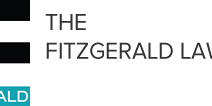Hundreds of thousands of bankruptcy petitions are filed in the U.S. each year. According to the U.S. Bankruptcy Courts, a total of 14,459 new bankruptcy petitions were filed in North Carolina in 2017 alone. Bankruptcy can offer a way for people to find relief from their debts and for businesses to restructure their debts as well. If you are struggling with debts that have become difficult to manage, filing bankruptcy in North Carolina might be a good option for you. Hiring a qualified bankruptcy lawyer to handle this for you is the easiest way to get this started.
Bankruptcy Courses in North Carolina
Before you can file for consumer bankruptcy in North Carolina, you must first complete an approved credit counseling course. Don’t waste time looking into approved agencies or waste money purchasing a course; our firm does that work for you and the cost for their course is included in the flat fee for a Chapter 7 (costs also incorporated in our Chapter 13 fees). The Fitzgerald Law Firm flat fee for a Chapter 7 includes a cost to purchase a client’s pre and post-filing bankruptcy courses.
The course must be offered by a credit counseling agency that has been approved. To get a list of the approved credit counseling courses, you can contact your jurisdiction’s bankruptcy administrator. Once you complete the required credit counseling course, you will receive a certificate. This certificate must be filed with your bankruptcy petition.
Where to File for Bankruptcy
The North Carolina bankruptcy courts are divided into three districts our Asheville office files exclusively in the Western District of NC. There are different local rules that will apply to different cases, the Fitzgerald Law Firm will take care of all this for you.
Property Exemptions When Filing Bankruptcy
While there are federal property exemptions, people in North Carolina must use the state’s exemptions. Some states allow you to choose either the state or federal exemptions. In North Carolina, you must use the state’s list. When you file a Chapter 7 bankruptcy petition, you will be able to keep the property that you own that falls under the state’s exemptions list. For example, North Carolina has a homestead exemption of up to $30,000 for your home. There is also an additional $5,000 that can be used to protect additional equity in the residence or be used as a “WildCard” to be put toward anything else.
Gather Your Financial Documents
It is important for you to gather your financial documents together before you meet with your bankruptcy lawyer. You should bring your tax returns for the past three years, your paycheck stubs, a complete list of your bills and the creditors who hold the accounts and your credit reports. We will also help you get a credit report to get a full list. The Fitzgerald Law Firm’s total fee for bankruptcy services also includes a cost to pull the client’s credit report.
Complete Your Debtor Education Course
After you have filed for bankruptcy, you will have to complete the final debtor education course before you will receive your discharge. Once again, the Fitzgerald Law Firm does that work for you and the cost for their course is included in the flat fee for a Chapter 7 and Chapter 13.
Filing bankruptcy can offer you the ability to have a fresh financial start while giving you relief from unmanageable debt. To learn more about filing Bankruptcy in North Carolina and whether it might be a good choice for you, contact the Fitzgerald Law Firm to schedule your consultation.

